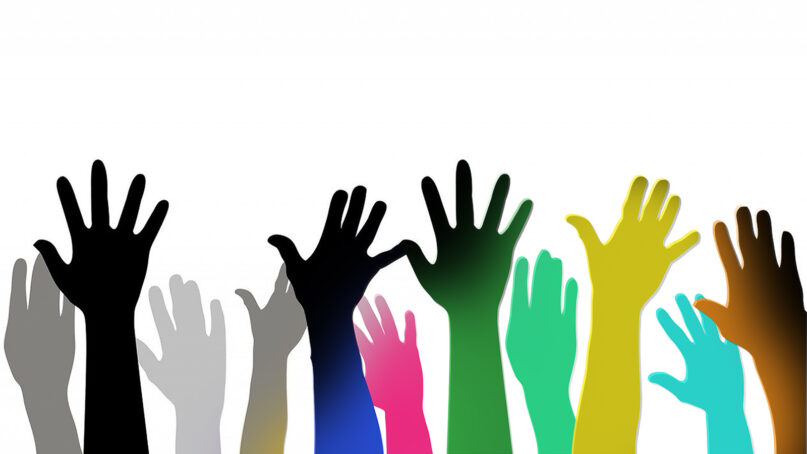(RNS) — Nearly a year ago, some 60 Black Christian leaders signed a letter criticizing the Equality Act, a historic bill in Congress that would provide non-discrimination protections for LGBTQ people. The signers of the letter called instead for a compromise bill that would include religious exemptions, which would in practical effect create substandard protections with massive loopholes and carve-outs and upend existing federal programs that serve children in need.
With Martin Luther King Day approaching, we are reminded that from abolition through the civil rights movement, faith has been a driving force in the struggle for freedom and equality for African Americans. But Black Christians also know that religion can be used to disenfranchise and exploit their community. Discrimination against all people is immoral, unethical, and unacceptable.
While religious communities have the right to exercise their beliefs, religious freedom should never be misused to deny people the right to live, thrive and be fully human in society.
LGBTQ equality is too often a taboo topic in religious communities, and this evasion allows those claiming religious freedom to disguise their discrimination, especially in areas of public policy. Currently, 29 states do not have full legal protections for LGBTQ people. A simple act of crossing state lines could expose our LGBTQ family to discrimination and harm.
RELATED: LGBTQ freedoms — all of our freedoms — depend on restoring voting rights
The reality is that more religious people than not support LGBTQ equality, and we need to talk about it. Sixty-five percent of Black Protestants favor LGBTQ nondiscrimination protections because they recognize the image of God in every person. An estimated 1.2 million adults in the United States identify as Black and LGBTQ, and 71% of them are religious.
These Black LGBTQ people of faith experience a higher rate of discrimination and victimization than any other group. They are more likely to experience unemployment, food insecurity, homelessness, violence and suicide. This inequity violates the principle that we are all created equal.
In June of last year, the Samuel DeWitt Proctor Conference, an organization that supports pastors in their pursuit of social justice, hosted the Proctor Pride Prayerdemic, a series of devotional services led by LGBTQ clergy leaders and allies. The event celebrated the sacredness and beauty of their existence within the beloved community.
Months later, SDPC hosted an information session in support of LGBTQ equality in partnership with the National Black Justice Coalition urging faith leaders to take action by contacting their elected officials in support of nondiscrimination protections.
Furthermore, SDPC’s Murray-Rustin Social Justice Institute, named after Pauli Murray, an African American Episcopal priest, and Bayard Rustin, a Quaker leader in the movements for civil rights and LGBTQ rights, works to remind all religious people that the work of justice and equality in religious communities includes the concerns of LGBTQ and nonbinary people, especially those who have experienced discrimination and trauma in non-affirming congregations and the public square.
RELATED: Black pastors sign letter supporting compromise bill on LGBTQ equality
Standing in support of LGBTQ equality presents an opportunity for the Black faith community to continue its long-standing legacy of unapologetically advocating for civil and human rights for all who are marginalized.
Providing federal protections for LGBTQ Americans is not about a subset of the American population; it’s about all of us. It is about envisioning how every single person, made in the image of our creator, can live free from the sting of discrimination. Let us commit to holding our LGBTQ siblings in care by remembering the principles of our faith and moral teachings to love one another.
(Sabrina E. Dent is president of The Center for Faith, Justice, and Reconciliation and editor of “African Americans and Religious Freedom: New Perspectives for Congregations and Communities.” The views expressed in this commentary do not necessarily reflect those of Religion News Service.)





